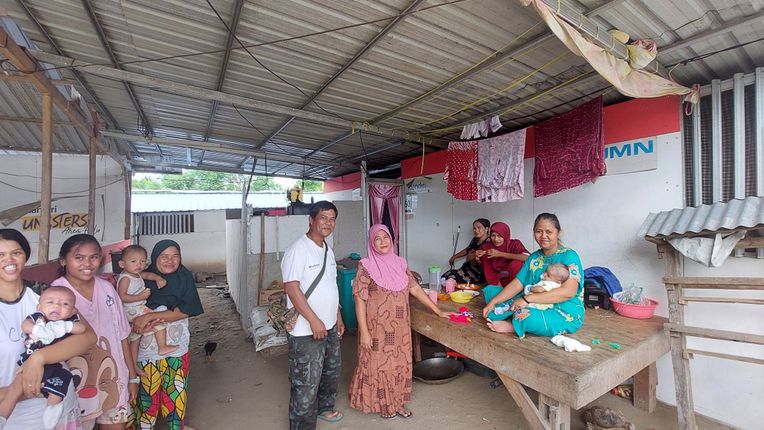
This project has been completed.
Protection and resilience for vulnerable communities in Sulawesi
The Indonesian island of Sulawesi was hit by a severe earthquake and tsunami in 2018, causing a great number of people to lose their livelihoods. Access to a good water supply, sanitary facilities, food and health services is still inadequate. Vulnerable groups in particular, such as children, women and people with disabilities, suffer from a lack of protection and participation.
Since October 2021, we have been working in cooperation with our Indonesian partner organization PKPA in four villages in the districts of Donggala and Sigi. Our aim is to create income opportunities, improve disaster risk reduction and ensure access to water, sanitation and hygiene (WASH). By integrating local resources, we strengthen the resilience of the communities according to the ABCD approach (Asset Based Community Development).
In September 2018, a 7.4-magnitude earthquake off the coast of the Indonesian island of Sulawesi triggered a tsunami that claimed over 4,000 lives and injured 14,200 people. The disaster destroyed large parts of the region, including the city of Palu. The consequences are still being felt today: reconstruction is proceeding slowly. Many people are unable to return to their destroyed villages and are living in emergency shelters.
After the disaster, many of the people affected lost their income and livelihood. The lack of water, electricity, food and healthcare is making the situation worse. The social and economic situation is tense, leading to violence and child marriages. Other disasters such as the Covid-19 pandemic are also threatening the region. Almost 90% of the government budget has been reallocated to the fight against Covid-19 and the important promotion of disaster prevention has been stopped.
The project aims to reduce poverty and strengthen the resilience of the affected communities in Central Sulawesi.
Specifically, we aim to:
- Better prepare the population for natural disasters and increase their ability to respond.
- Improve access to clean water, sanitation and hygiene measures.
- Ensure the protection and empowerment of vulnerable groups, especially children and people with disabilities.
- Improve the income opportunities of affected communities.
- Integrate Covid-19 prevention and awareness-raising measures into all activities.
- Preventive measures such as disaster-proof schools, emergency plans and distribution of disaster risk reduction equipment.
- Expansion of water supply, sanitation and hygiene facilities (WASH).
- Support vulnerable groups, such as those affected by child labor, domestic violence and drug addiction, through protection systems, including the inclusion of people with disabilities.
- Poverty reduction and promotion of income opportunities through the establishment of micro-enterprises.
- Implementation of Covid-19 prevention and awareness-raising measures.
Project data
Project duration: October 2021 – September 2024
Financial support: Federal Ministry for Economic Cooperation and Development (BMZ), Malteser International
Partner: PKPA








